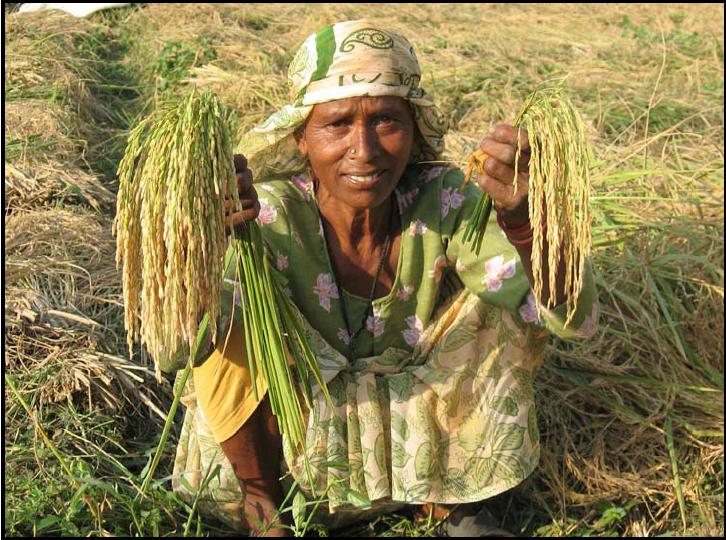News and Articles
Experience sharing workshops on System of Rice Intensification (SRI) - A report
Posted on 29 Aug, 2009 02:55 PM This report available on the Watershed Support Services And Activities Network (WASSAN) site provides the details of three workshops organised by People's Science Institute (PSI) in October 2006 in the states of Uttarakhand and Himachal Pradesh as a first step towards sharing the experiences of System of Rice Intensification (SRI) method with the stakeholders group as well as assist the voluntary organisations in Uttarakhand and Himachal Pradesh to develop professional capabilities in the field of SRI method of paddy cultivation.
This report available on the Watershed Support Services And Activities Network (WASSAN) site provides the details of three workshops organised by People's Science Institute (PSI) in October 2006 in the states of Uttarakhand and Himachal Pradesh as a first step towards sharing the experiences of System of Rice Intensification (SRI) method with the stakeholders group as well as assist the voluntary organisations in Uttarakhand and Himachal Pradesh to develop professional capabilities in the field of SRI method of paddy cultivation.
The how, what, when of climate change: Background and basics
Posted on 29 Aug, 2009 02:09 PMClimate Change is a significant change in temperature, wind patterns and precipitation that occurs over a long period of time. Some of these changes occur in cycles over decades, hundreds, thousands and millions of years; some could be random occurrences.
Using water sustainably in agriculture: Increasing productivity and farm income
Posted on 29 Aug, 2009 01:29 PMAgriculture is a vital sector in India with about 60% of the population engaged in agricultural vocations and contributing to about 30% of the GDP. It consumes about 80% of water used in the country and 76% of the net irrigated area in the country is from ground water sources.
NREGA is making a difference to the lives of the rural poor: An article from Frontline magazine
Posted on 29 Aug, 2009 12:33 PMRead the main article: " Battle for work" by Jean Dreze and Reetika Khera.
Resource on the National Rural Employment Guarantee Act (NREGA)
Posted on 29 Aug, 2009 12:06 PMThis includes articles, background papers, photo slideshows and Down To Earth magazine coverage of issues realting to the NREGA.
Intergovernmental Panel on Climate Change: Constituents, working groups and compilation of resources relating to the IPCC
Posted on 29 Aug, 2009 10:58 AMWhen climate change was first posited as "real" people all over the world realized that this issue encompasses the inter linkage of several other issues. The scope and magnitude of the consequences of climate change are also very far reaching.
The Subsidiary Body for Scientific and Technological Advice: A subsidiary body to the UNFCCC
Posted on 29 Aug, 2009 10:37 AMSome of the issues the SBSTA is currently dealing with are land use, land-use change and forestry, adaptation, mitigation, research, systematic observation and bunker fuels.
Extensive online resource base on the System of Rice Intensification: Homepage on the CIIFAD website
Posted on 29 Aug, 2009 10:31 AMThe site has sections detailing the methodology of SRI, its advantages, origins, current status in countries across the world, videos, articles, research papers, extension information, conference outputs, discussion communities, update series, newsletters and more.
See the homepage: Here
The United Nations Framework Convention on Climate Change (UNFCCC)
Posted on 29 Aug, 2009 09:58 AMOver a decade ago, most countries joined an international treaty – the United Nations Framework Convention on Climate Change (UNFCCC) – to begin to consider what can be done to reduce global warming and to cope with whatever temperature increases are inevitable.
United Nations Framework Convention on Climate Change COP-1: The Berlin Mandate
Posted on 28 Aug, 2009 05:53 PMThe goal for COP1 was therefore set at adoption of legally binding obligations to reduce greenhouse gas emissions. It was expected that 15 years down the line, the larger, newly industrializing countries would together be among the largest emitters of greenhouse gas emissions.